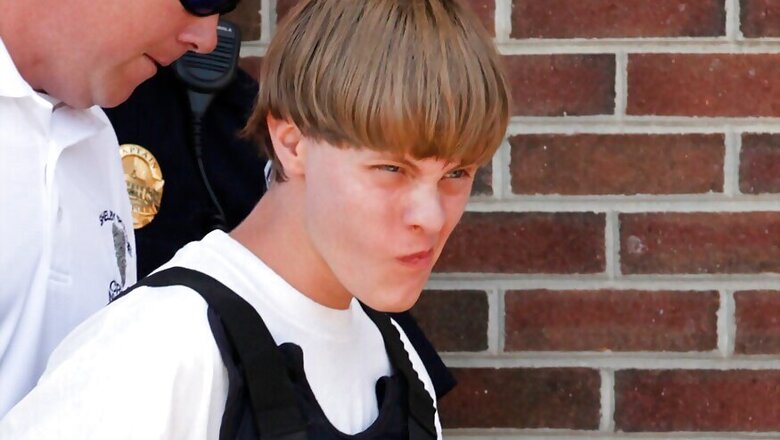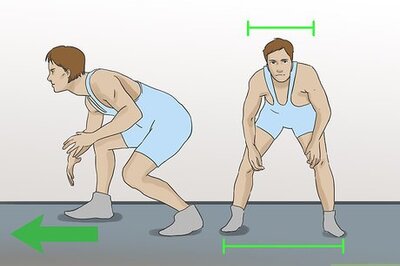
views
Charleston(United States): A US jury on condemned self-described white supremacist Dylann Roof to death over the massacre of nine black worshippers in a South Carolina church in June 2015.
Roof, 22, was convicted last month of 33 federal charges -- including hate crimes resulting in death -- in connection with the shooting spree at the historic Emanuel African Methodist Episcopal Church in downtown Charleston.
A Bible study group at "Mother Emanuel," which had welcomed Roof, was just beginning its closing prayer when the self-avowed Nazi and Ku Klux Klan sympathizer opened fire, killing nine people ranging in age from 26 to 87. The slayings once again exposed the deep divides in America over race and access to guns.
Roof showed little reaction to the decision, delivered just hours after the 12-member jury retired to deliberate, though he occasionally seemed to be slightly smiling.
Federal judge Richard Gergel will formally deliver Roof's sentence today morning at the Charleston courthouse. The verdict unanimously reached by the jury is binding.
"I still feel like I had to do it," Roof told jurors yesterday in a semi-coherent closing argument.
Roof represented himself in the sentencing phase of the trial, against the advice of his lawyers and the judge. He called no witnesses and offered no evidence for the jury to consider.
After the jury offered its sentencing verdict, Roof asked for new attorneys so he could move for a retrial, but Gergel told him to provide specific reasons for his request on Wednesday. Relatives of the victims will be invited to speak at Wednesday's hearing.
Earlier, prosecutor Jay Richardson urged jurors to sentence Roof to death for "this cold, calculated, malicious killing."
"Not one tear did he shed for those that he killed," he said. "Unrepentant. No remorse."
Richardson noted Roof only expressed sorrow that he put his parents through an emotional trial during which his mother suffered a heart attack after a survivor's gripping testimony.
"He had sorrow for them. He had pity for himself. That he had lost his freedom. His ability to watch movies and drive a
car," he said. "But his sadness was reserved for the little white children that have to live with African Americans."
During the first phase of the trial, Roof exhibited no signs of remorse as survivors recounted the rampage in heart-rending detail.




















Comments
0 comment